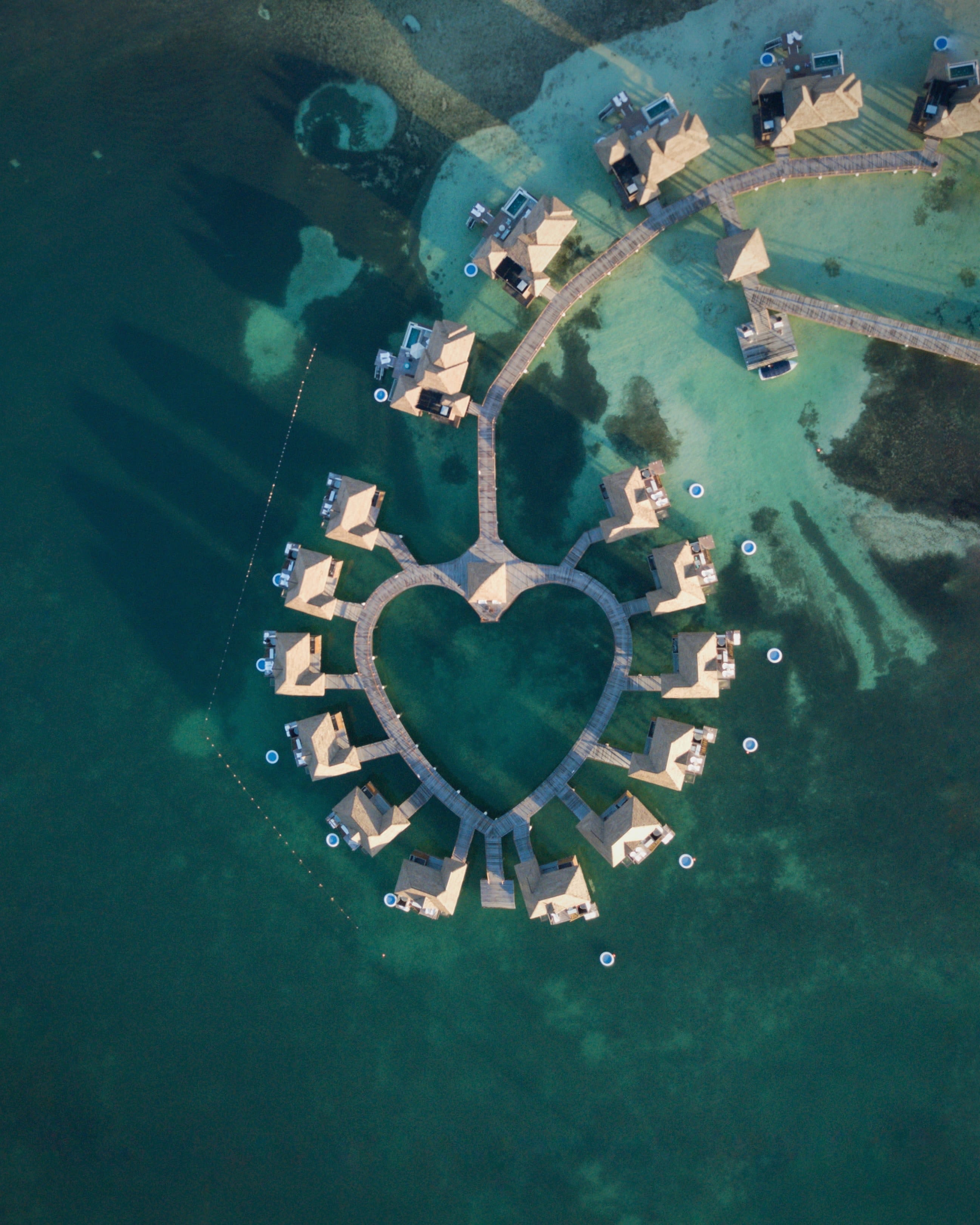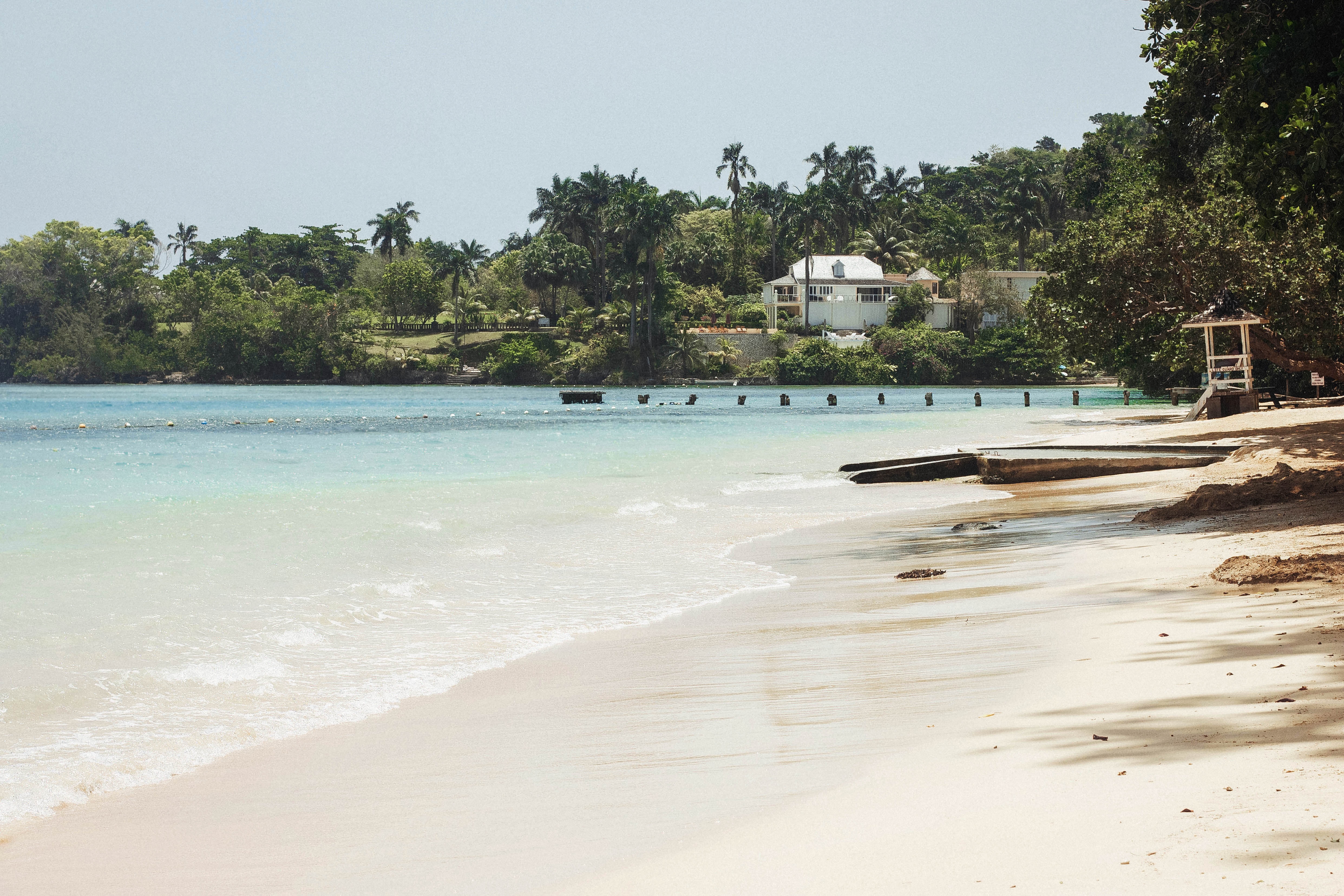If you want a sun-soaked Caribbean getaway with equal parts adventure, luxury, and great music, visit Jamaica! This beautiful Caribbean island is known for its beautiful sandy beaches, lush rainforests, and for its role as the birthplace of reggae.
If you’re planning a Jamaica vacation, you might be wondering: can you drink the tap water in Jamaica? In general, tap water in Jamaica is safe to drink in popular areas of the island, but you may still want to filter it first just in case.

Key takeaways: Can you drink the water in Jamaica?
- The tap water in Jamaica is monitored by the country’s National Water Commission (NWC) to align with health standards. Additionally, some popular tourist resorts will also filter the water on site to make it safe for consumption.
- Unfortunately, access to safe water is not the same in different areas of the country, which means some areas may not have potable drinking water.
- The piped water in more popular destinations in Jamaica, including Kingston, Negris, Port Antonio, and Montego Bay, is generally safe. However, there is still the risk of common contaminants like nitrates and lead from old pipes, so it’s always a good idea to run it through a filtering water bottle or filtering water pitcher first.
Facts about Jamaican tap water quality
The monitoring and distribution of drinking water in more populous areas of Jamaica is overseen by the National Water Commission (NWC) which treats water and ensures that it is safe to drink. Most of Jamaica’s tap water is groundwater held in underground aquifers. However, some of the tap water in Jamaica also comes from freshwater sources like rivers, ponds, wells, and spring water. These water sources are monitored by the Water Resources Authority (WRA).
Because the water resources in Jamaica are so rich, and since it is monitored so closely by the NWC, the tap water in many parts of Jamaica is generally safe to drink and of high quality. In fact, the water is so good that many cruise ships passing by like to stop in Jamaica’s port town Ocho Rios to refill their own water supply. Additionally, popular resorts like Beaches and Sandals filter the water themselves. However, water quality in Jamaica can also vary based on factors like pollution and older water infrastructure.
Possible quality issues with Jamaica’s tap water
Busier cities and popular tourist towns like Montego Bay, Negril, Ocho Rios, Kingston, and Port Antonio are well connected to pipe water. In fact, about 95% of the urban population has access to the water that is distributed by the NWC. While this water is tested and is technically safe to drink, some issues have still been found throughout these urban centers.
Nitrates
Nitrates are a group of chemicals that are sometimes associated with health risks like birth defects and certain cancer when ingested. Unfortunately, nitrates can sometimes enter water supplies, an issue that was recently highlighted in Kingston. A study conducted in 2020 by Groundwater Availability and Security in the Kingston Basin saw very high levels of nitrates in the water, likely from contamination by nearby septic pits, to the point where it was not safe for domestic use.
Lead and asbestos
It’s also important to note the potential presence of lead. Lead is a heavy metal that has been linked to serious health concerns like neurotoxicity, especially in children. Luckily, the presence of lead in tap water is fairly low in Jamaica, especially compared to other countries, though instances are higher in children who don’t have access to piped water. Still, it’s always a good idea to filter your tap water before you drink it — according to the World Health Organization and many other health authorities, there is no known safe level of lead.
Interestingly, though, certain areas of Jamaica do seem to have a problem with old asbestos cement pipes, which brings up the potential for asbestos fibers contaminating the tap water. The use of asbestos cement was banned by Jamaica in 1980, but old pipes still remain throughout Jamaica. The NWC claims that there is no need to worry about asbestos fibers; however, some studies have suggested that ingestion of asbestos may present a carcinogenic risk and that more research needs to be done.
Questions on sourcing
Finally, Jamaica’s water sources are also vulnerable to drought, especially during dry seasons. Because of the severe lack of rain and subsequent low water supply, the NWC has occasionally had to limit water usage to avoid unnecessary water waste. In addition, the low water supply means that some water is trucked in from verified resources. But though the water is still sterilized and approved, the Ministry of Health & Wellness recently issued a health advisory advising consumers to boil or treat water with bleach prior to drinking if they were unsure about the source of their water.
Notes on water in rural areas of Jamaica
The water that is managed and distributed by the NWC in busier areas of Jamaica is subject to testing and quality control, both of which make it safe for consumption. Unfortunately, the distribution of safe water in Jamaica is not as even as it could be, which means that water quality can differ from area to area.
Though the water in heavily populated areas like Kingston, Montego Bay, and Ocho Rios is generally well-connected to the monitored water supply, the same isn’t always true for some areas that are further away from the busy city centers. In some rural areas, residents’ homes aren’t connected to the drinking water supply at all. In fact, one report estimated that only 71% of Jamaica’s total residents are connected to water pipes. Meanwhile, 5.7% of residents get their water from the rivers, and 3.1% from pond water.
In these cases, the water is not as heavily monitored as the distributed water in the tap system, which means that it may not be as safe as the drinking water connected to the taps.
Considerations during stormy seasons
Because of its prime location in the Caribbean Ocean, Jamaica experiences a regular hurricane season that stretches from the month of June all the way until November. Unfortunately, these extreme weather events can lead to flooding, which can sometimes present water quality concerns.
For example, in 2015, residents in Jamaica were urged to boil their water before consumption to stave off the potential of waterborne diseases like gastroenteritis, which tend to rise after major storms and flooding like the recent Hurricane Matthew. Freshwater sources in Jamaica have also sometimes been associated with leptospirosis, a waterborne illness that occurs from physical contact with contaminated water. Because of this, it’s important to make sure that you aren’t drinking untreated water in Jamaica and sticking with (filtered) tap water in areas with good plumbing.
Inefficient sanitation systems
Finally, it’s also worth mentioning Jamaica’s sanitation systems and how they may play a role in the water quality. Some sources claim that the sanitation systems in Jamaica are inefficient, which means that trash can’t always be properly disposed of. This can hypothetically lead to an increased risk of water contamination and the potential for related waterborne diseases like diarrhea, cholera, and dysentery. There are also concerns that the improper disposal of waste can clog sewer systems, leading to property destruction and negative impacts on marine life.
Conclusion
Some rural areas are not well-connected to treated water systems, which means that the water quality is often questionable. However, in popular Jamaican destinations like Ocho Rios, Kingston, Port Antonio, Montego Bay, and Negril, the tap water in Jamaica is generally safe to drink. Still, there are some known issues like excessive nitrate levels and contamination from old pipes.
When you are in these popular areas of Jamaica, make the most out of your tap water by filtering it first! By running your Jamaican tap water through a filtering system like the LARQ Bottle Filtered or the LARQ Pitcher PureVis, you can eliminate some of the most common water contaminants like lead, heavy metals, pharmaceuticals, chlorine, VOCs, and PFAS/PFOA. You can also fill your filtering water bottle up in areas that are known to have safe drinking water so that you can take them along with you if you are journeying to areas with more questionable water quality.
